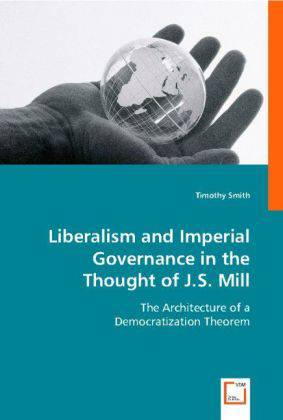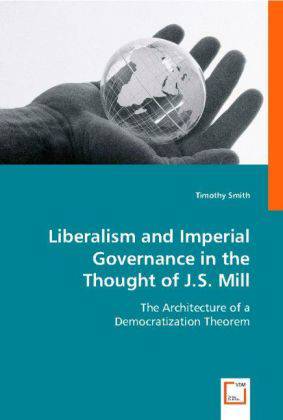
Bedankt voor het vertrouwen het afgelopen jaar! Om jou te bedanken bieden we GRATIS verzending (in België) aan op alles gedurende de hele maand januari.
- Afhalen na 1 uur in een winkel met voorraad
- In januari gratis thuislevering in België
- Ruim aanbod met 7 miljoen producten
Bedankt voor het vertrouwen het afgelopen jaar! Om jou te bedanken bieden we GRATIS verzending (in België) aan op alles gedurende de hele maand januari.
- Afhalen na 1 uur in een winkel met voorraad
- In januari gratis thuislevering in België
- Ruim aanbod met 7 miljoen producten
Zoeken
Liberalism and Imperial Governance in the Thought of J.S. Mill
The Architecture of a Democratization Theorem
Timothy Smith
Paperback | Engels
€ 58,45
+ 116 punten
Omschrijving
In this work John Stuart Mill's classic text Considerations on Representative Government is framed as a treatise of a theorem for guiding "civilized" governors in imperially democratizing "non-civilized others" for the ends of historically moving humanity towards "civilizational progress." This theorem is broken down into an architecture which consists of the first four chapters of Considerations and a conceptual architecture consisting of three notions: imperialism, democracy, and good governance. In outlining this theorem, gaps and shortcomings currently existing in the body of literature that engages Mill's relationship with imperialism are identified. The theorem and the secondary literature are also used to problematize and argue against the call by some authors for a turn to Mill's imperialism.
Specificaties
Betrokkenen
- Auteur(s):
- Uitgeverij:
Inhoud
- Aantal bladzijden:
- 128
- Taal:
- Engels
Eigenschappen
- Productcode (EAN):
- 9783836483094
- Uitvoering:
- Paperback
- Afmetingen:
- 150 mm x 8 mm
- Gewicht:
- 207 g

Alleen bij Standaard Boekhandel
+ 116 punten op je klantenkaart van Standaard Boekhandel
Beoordelingen
We publiceren alleen reviews die voldoen aan de voorwaarden voor reviews. Bekijk onze voorwaarden voor reviews.









